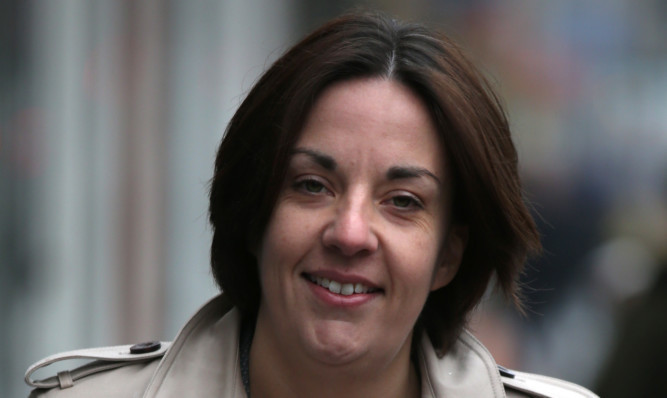Scottish Labour leader Kezia Dugdale says she has been “bowled over” by the support she has received since revealing she is in love with a woman.
Ms Dugdale, who has previously steered away from talking about her private life, revealed during a recent interview that she is in a same-sex relationship.
She is one of several high-profile political figures in Scotland to have come out.
“I have a female partner. I don’t talk about it very much because I don’t feel I need to. And there’s something too about how meteoric my career has been,” she told the Fabian Society on Friday.
“I am generally calm, almost serene. I don’t get easily stressed or battered.
“But I need a bit of stability to do that, and that means my private life is my private life. That’s the thing I just have to have that nobody gets to touch, and that gives me the strength to be calm elsewhere.”
Ms Dugdale subsequently tweeted her thanks to those who had sent her “all the lovely messages of support”.
Among those lending their support was openly-gay Scottish Conservative leader Ruth Davidson, who tweeted: “Genuinely pleased Kez feels comfortable enough to come out. Being open about your sexuality in the public eye can be daunting, but worth it.”
Writing in her column in the Daily Record on Monday, Ms Dugdale praised the reaction to her announcement and hailed the diversity within the Scottish Parliament.
She said: “I’ve been bowled over by the support I’ve received this weekend after deciding to share with the world that I’m in love with a woman.
“The Scottish Parliament was once referred to as the rainbow parliament because of the array of party colours represented.
“While the number of Greens and socialists might have fallen back, the diversity of our Parliament remains. In fact, it’s now considered the gayest Parliament in the world.
“The journey Scotland has taken since those horror days of Section 28 is remarkable.”
The controversial section 28 law, which was part of the Local Government Act 1988, stipulated that local authorities should “not intentionally promote homosexuality” or “promote the teaching in any maintained school of the acceptability of homosexuality as a pretended family relationship”.
It was repealed by the Scottish Parliament in June 2000 – one of the first acts of the then Labour/Lib Dem coalition.
Concluding her column, Ms Dugdale added: “While the rainbow flag might be flying higher than ever above Holyrood, we can take pride in the fact it’s been there for LGBT (lesbian, gay, bisexual and transgender) Scots since day one.”
Other Scottish political figures to have come out include Ukip MEP David Coburn and Scottish Secretary David Mundell.
Mr Mundell, Scotland’s only Conservative MP, revealed in January that he is gay, making him the first openly-gay Tory cabinet minister.
In a statement on his website, he described resolving to go public as “one of the most important decisions of my life”.
